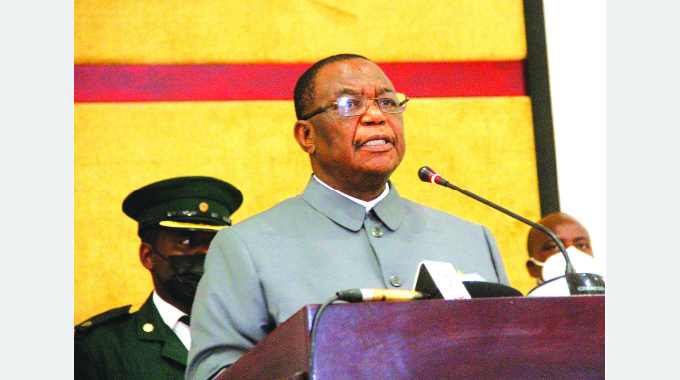App improves drug management

Mukudzei Chingwere–Herald Reporter
The Ministry of Health and Child Care is rolling out an integrated electronic drug and medicinal management system that will harmonise the management of consumables and improve efficiency of its national distribution.
Vice President and Minister of Health and Child Care Constantino Chiwenga delivered a public lecture at the Zimbabwe National Defence University yesterday on drug sufficiency, health tourism and the integration of traditional and western healthcare systems in Zimbabwe.
The electronic management system, VP Chiwenga said, will allow each public health institution to know of medicines or drugs stocked at other institutions and can make requests from the other when need arose.
A key tenant of the system is to ensure equitable distribution of national resources to all places.
“The Ministry is rolling out an electronic logistics management information system to all health facilities to manage medicines, laboratory commodities and other health products,” said VP Chiwenga.
“This will allow managers at all levels to view stock available at health facilities to aid decision-making in redistributions and ensuring equity of medicines and related supplies.
“More often than not, a product stocked out at one facility is available elsewhere. This new system is remedial and will allow visibility of stock data throughout the supply chain.”
VP Chiwenga’s lecture also touched on health tourism.
Under the health tourism strategy, Government is targeting to modernise the local health sector to levels where all outbound medical visits are halted and instead promote all inbound medical referrals from across the region and internationally.
“Some of the foreign medical centres, especially those in India, have been vigorously marketing themselves in our jurisdiction, setting up agencies to recruit patients for their institutions,” said VP Chiwenga.
“The implication here is that there is a potential market for medical tourism regionally and internationally, which Zimbabwe can tap into.
“The provision of medical care depends on the key pillars of human resource expertise, infrastructure and transport, medical equipment, supply of medicines and consumables. Of all the pillars, the country has a robust capacity to produce its own human resources for health.”
For instance, before 2017, Zimbabwe had one medical school which produced an average 80 doctors per year, but now it has three which can produce an average of 150 doctors, while some more medical schools are on the way.
VP Chiwenga noted that Government appreciated the important role played by traditional medical interventions in society.








Comments